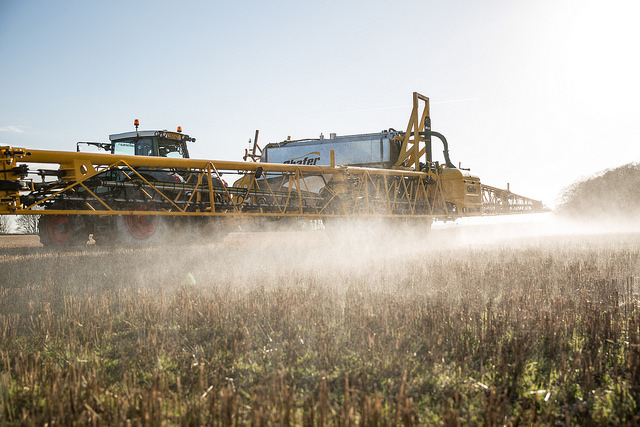
For a long time, Monsanto’s weedkiller glyphosate (the main component of Roundup) appeared to be nontoxic to humans. Consequently, farmers began using it liberally on their fields and crops, which rapidly increased residues in our food and water supply (especially on wheat). Unfortunately, a large and growing body of evidence suggests that glyphosate is causing a variety of serious chronic conditions, even at the “safe” levels we are all being exposed to.
- Has been deemed a “probable carcinogen” by the World Health Organization.
- Is a potent endocrine disruptor, contributing to epidemic of estrogen dominance, and the resulting hormone issues and breast cancer.
- Decimates our precious microbiome, the microbial friends in our gut that are vital to every aspect of our health.
- Is toxic to the liver and kidney.
- Is highly correlated with celiac disease and non-Hodgkins lymphoma.
- Inhibits our body’s detoxification ability.
- Is increasingly found in higher levels in our food and bodies, even in breast milk.
- Is the most heavily applied herbicide in the world, with 1.8 million tons applied in the US alone.
This isn’t one of those cases where negative effects are only seen at unrealistically high intakes. A review published in 2016 in Environmental Health points out that there is “…evidence of heightened cancer risk in human populations at levels of exposure actually experienced in human populations” and that kidney and liver damage occurs “in the range of what are now generally considered ‘safe’ for humans”.
Conventional wheat is especially noxious because it is routinely doused with glyphosate at least three times during cultivation, with a heavy dose right before harvest. This final dose dramatically increases glyphosate residues in foods made with wheat.
Due to this cumulative data, at least 13 countries have banned or severely limited the use of glyphosate. The US is not one of them. Not only that, but the acceptable daily intake (ADI) for glyphosate in the US is almost six times higher than in the EU (1.75 vs 0.3 mg/kg body weight/day).
To avoid glyphosate-related health issues, especially if you already suffer from hormone imbalance, kidney impairment, fatty liver, digestive woes including Celiac, or food sensitivities, it would be wise to:
- When eating wheat, always be sure it’s organic.
- Minimize or eliminate wheat in general.
- Choose organic produce as much as possible.
- Avoid using the weedkiller Roundup in your yard or garden. You can absorb it through your skin and lungs.
Sorry, comments are closed for this post.